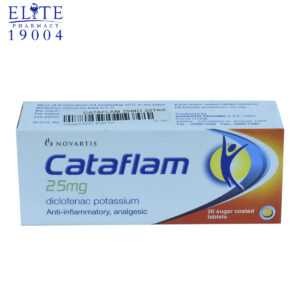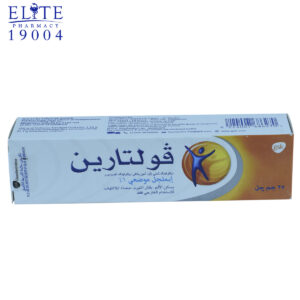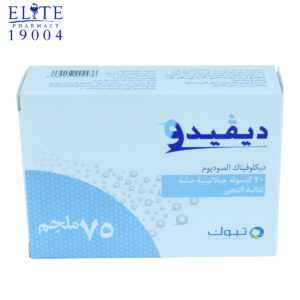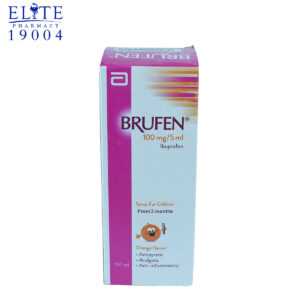ketolac 10 mg 20 tab
Home » Shop – Latest Skin and Care Products » Analgesic and anti-inflammatory » ketolac 10 mg 20 tab
Featured Products
ketolac 10 mg 20 tab
18.00 EGP
- Brand: ketolac
- Country of manufacture: Egypt
- Size: 20 capsules
- Type: Capsules
Description
ACTIVE-INGREDIENT OF KETOLAC TAB
Each tablet contains: Ketorolac tromethamine 10 mg.
INDICATION OF KETOLAC TAB
- Ketolac is indicated for the short-term management of moderate to severe acute post-operative pain.
- Treatment should only be initiated in hospitals. The maximum duration of treatment is seven days for Ketolac Tablets.
DOSAGE OF KETOLAC TAB
- Follow all directions given to you by your pharmacist or doctor carefully .
- They may differ from the information contained in this leaflet
The recommended dose is : –
- For oral administration: To be taken preferably with or after food.
- Ketolac tablets are recommended for short-term use only (up to 7 days) and are not recommended for chronic use.
- ndesirable effects may be minimized by using the lowest effective dose for the shortest possible duration necessary to control symptoms. Adults: 10 mg every 4 to 6 hours as required.
- Doses exceeding 40 mg per day are not recommended. Dpioid analgesics (e.g. morphine, pethidine) may be used concomitantly, and may be required for optimal analgesic effect in the early post-operative period when pain is most severe.
- Ketolac does not interfere with opioid binding and does not exacerbate opioid related respiratory depression or sedation.
- When used in association with Ketolac IM injection/IV infusion, the daily dose of opioid is usually less than that normally required.
- However, opioid side-effects should still be considered, especially in day case surgery.
- For patients receiving parenteral Ketolac, and who are converted to Ketolac oral tablets, the total combined daily dose should not exceed 90 mg (60 mg for the elderly, renally impaired patients and patients less than 50 kg) and the oral component should not exceed 40 mg on the day the change of formulation is made.
- Patients should be converted to oral treatment as soon as possible. Elderly: The elderly are at increased risk of the serious consequences of adverse reactions.
- If an NSAID is considered necessary, the lowest effective dose should be used and for the shortest possible duration. The patient should be monitored regularly for GI bleeding during NSAID therapy.
- For Ketolac tablets, a longer dosing interval, e.g. 6 – 8 hourly, is advisable.
- Children: Safety and efficacy in children have not been established, Therefore, Ketolac is not recommended for use in children under 16 years of age.
- Renal impairment: Contra-indication in moderate to severe renal impairment; reduce dosage in lesser impairment ( not exceeding 60 mg/day IV or IM).
OVER-DOSAGE OF KETOLAC TAB
- Symptoms: Symptoms include headache, nausea, vomiting, epigastric pain, gastrointestinal bleeding, rarely diarrhoea, disorientation, excitation, coma, drowsiness, dizziness, tinitusm fainting, occasionally convulsions.
- In cases of significant poisoning acute renal failure and liver damage are possible. b) Therapeutic measure: Patients should be treated symptomatically as required. within one hour of ingestion of a potentially toxic amount, activated charcoal should be considered.
- Alternatively, in adults, gastric lavage should be considered within one hour of ingestion of a potentially life threatening overdose.
- Good urine output should be ensured.
- Renal and liver function should be closely monitored.
- Patients should be observed for at least four hours ingestion of potentially toxic amounts.
- Frequent or prolonged convulsions should be treated with intravenous diazepam.
- Other measures may be indicated by the patient’s clinical condition.
CONTRA-INDICATION OF KETOLAC TAB
- Active peptic ulcer, or any history of gastrointestinal bleeding, ulceration or perforation.
- Severe heart failure, hepatic failure and renal failure. Suspected or confirmed cerebrovascular bleeding.
- Haemorrhagic diatheses, including coagulation disorders. Hypersensitivity to Ketorolac thromethamine or any of the excipients or other NSAIDs.
- Patients in whom Inuprofen, aspirin or other prostalglandin synthesis inhibitors induce allergic reactions e.g., asthma, rhinitis , angioedema, or urticaria (severe anaphylactic like reactions have been observed in such patients).
- The complete or partial syndrome of nasal polyps, angioedema or bronchospasm.
- Concurrent treatment with other NSAIDs, (including cyclooxygenase-2 selective inhibitors), okapentifylline, probenecid or lithium salts Hypovolaemia from any cause or dehydration.
- Moderate or severe renal impairment (serum creatinine >160 micromol/l) A history of asthma.
- Patients who have had operations with a high risk of haemorrhage or inincomplete haemostasis.
- Patients on anticoagulants including wartarin and low dose heparin 92500 – 5000 units 12 hourly).
- During pregnancy, labour, delivery or lactation. Children under 16 years of age.
- Ketolac is contraindicated as prophylactic analgesia before surgery due to inhibition of platelet aggregation and is contr-indicated intraoperatively because of the increased risk of bleeding.
- Ketolac is contraindicated in patients currently receiving aspirin.
SKU:
101087
Categories: Analgesic and anti-inflammatory, Analgesic and antipyretic, Bone pain, Medicines
Tags: ketolac egypt, ketorolac amp, ketorolac contraindications, ketorolac dose, ketorolac in pregnancy, ketorolac injection, ketorolac mechanism of action, ketorolac side effects, ketorolac tromethamine
Brand: Other











